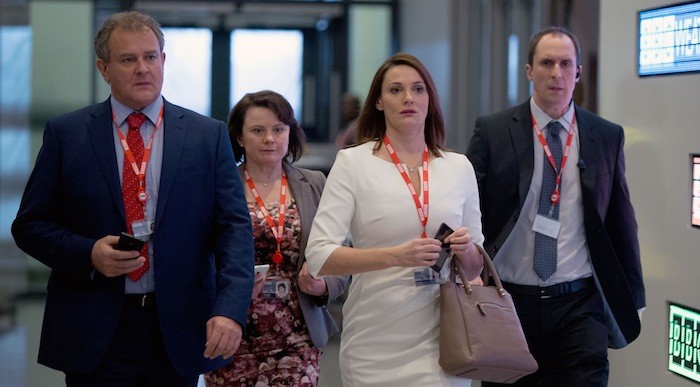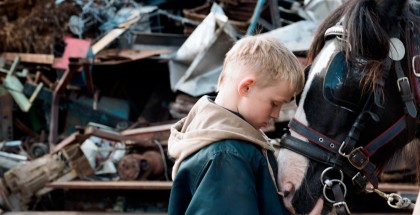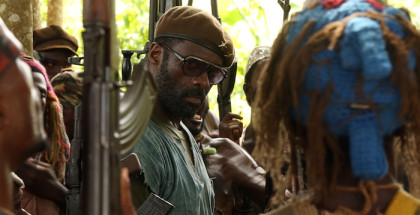Why W1A should be your next box set
Review Overview
Cast
8Script
8David Farnor | On 08, May 2016
“That’s all good, then,” says Ian Fletcher, Head of Values at the BBC after another unproductive group discussion. For anyone who watched mockumentary Twenty Twelve – or saw Season 1 of this Beeb-themed follow-up – Ian Fletcher’s (Hugh Bonneville) defeated catchphrase will fall on familiar ears. What it actually means: absolutely nothing’s good at all.
Following Twenty Twelve, made by the same team, the show takes the same strain of satire to awkward (and amusing) new heights, including visits to the Beeb from Prince Charles and a scandal involving Jeremy Clarkson. It’s no coincidence that the programme is stuffed with plausible story-lines – writer and director John Morton has an unnerving knack of ripping plots from newspaper headlines before they’ve happened, something that makes W1A feel topical, even long after its broadcast.
But it’s not the topical plots that make W1A so funny to watch: it’s the constant barrage of double-speak. “Yep, OK,” they all say over each other, never letting anyone in their hellish meetings actually make progress. The words may change, but the message is the same. Every time anyone speaks, they say nothing. Every time a conversation happens, it achieves nothing. And the more people speak – and the longer the meetings run – the less anything is actually said or done. It’s like watching a sitcom by Pinter or Beckett.
The cast deliver this intelligently stupid anti-language with wonderfully deadpan performances. Queen of it all is Jessica Hynes as PR guru Siobhan Sharpe (the impeccable Jessica Hynes), who agrees with every statement that comes out of anyone’s mouth. “Don’t think, just say things!” she enthuses, during one brainstorming session to help re-brand the BBC’s tennis coverage (the word “WINbledon” comes up). Inevitably, things descend into talk of monkeys and butter – topics that they could just as well be discussing at the end of the season, as they find themselves trying to “viralise” bearded weather presenter Sadiq Iqbal, something that proves just as successful.
The meaninglessness escalates with every tightly edited 30 minutes, from new in-house software Syncopatishare (try saying it with a straight face) to the revolutionary reorganisation of the Beeb’s management structure – which is the same as the old one, but rotated 90 degrees. At a time when the BBC is under pressure from the government to cut costs and potentially change its output entirely, the incompetence on display is scarily believable, but what Morton achieves with his second run is to translate that chaotic uncertainty from our character’s professional careers to their personal lives.
The hilarious Hugh Skinner is right at the heart of that, as he moves from intern to full-time employee as Ian’s assistant, but remains just as clueless when it comes admitting his feelings for Izzy (the ever-sweet Ophelia Lovibond). “Yeah, no, cool,” he repeats, over and over, looking as bemused about life as everyone else. But Ian is equally key to the show’s deft balance of emotion and idiocy – alongside Hynes, Bonneville is a veteran, having played Fletcher when he was the Head of the Olympic Deliverance Commission in W1A’s predecessor, Twenty Twelve. Bonneville’s stuttering, stunted chemistry is note-perfect, as Fletcher finds himself falling for Lucy (Nina Sosanya, who’s consistently impressed ever since her turn in Channel 4’s Teachers), Head of Inclusivity, but also finds himself chased by Anna Rampton, Director of Better. Sarah Parish’s newly promoted head storms through the corridors with an enjoyably nervous air, conducting her wooing of Ian with the same rigidity she brings to her job. When the three are in a car together, it’s a wonderfully subtle piece of writing – when a whole group of them are dashing between rooms, lost in the connecting pathways of Old and New Broadcasting House, it’s an exquisitely conceived piece of verbal and physical farce. That’s all good, then.
W1A is available on BBC iPlayer.























